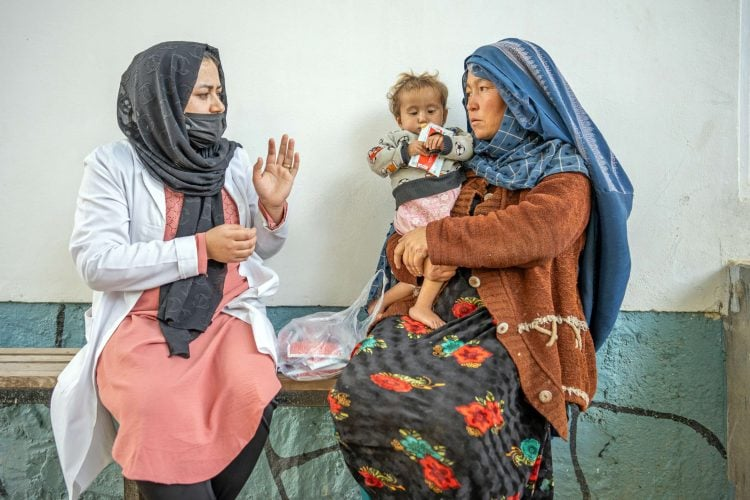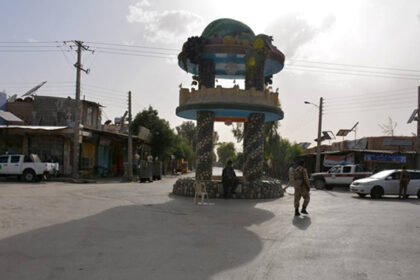RASC News Agency: The European Union’s Humanitarian Aid Office has announced a significant new partnership with the United Nations Children’s Fund (UNICEF) aimed at rebuilding Afghanistan’s broken healthcare system and addressing the devastating wave of child malnutrition sweeping across the country.
Funded through the ECHO-ASIA mechanism, this initiative seeks to train local Afghanistani health professionals in diagnosing, managing, and treating acute malnutrition among children—many of whom are battling hunger as a result of the country’s deepening economic collapse and systemic neglect under Taliban rule.
In a statement released Thursday, November 13, UNICEF said that the project is designed to strengthen the resilience of Afghanistan’s fragile health sector and to provide direct, life-sustaining support to families whose children are suffering from acute and chronic malnutrition. As part of this program, trained community-based health workers will conduct household-level monitoring, counseling, and treatment, ensuring faster and more accessible care while reducing dependence on overstretched hospitals and clinics—many of which have been left underfunded or mismanaged since the Taliban’s takeover.
According to UNICEF, the training curriculum includes modules on early detection of malnutrition symptoms, outpatient and emergency care, the effective use of ready-to-use therapeutic foods (RUTF), and family education on balanced nutrition and hygiene practices.
UNICEF explained that the primary goal of the program is to reduce unnecessary hospitalizations, enhance local response capacity, and empower communities to protect their own children’s health in the absence of effective national governance.
This initiative builds upon UNICEF’s earlier establishment of 70 Child Development Centers across various Afghanistani provinces, designed to promote physical growth, cognitive development, and parental awareness. These centers have become critical safe spaces for children, particularly girls, whose access to education and healthcare has been systematically restricted by the Taliban regime.
In its latest field assessment, UNICEF warned that millions of Afghanistani families, especially those living in remote mountain regions such as Bamyan and Badakhshan, still lack access to diverse, nutritious food sources. The absence of proteins, vitamins, and minerals in their daily diet has triggered an alarming increase in malnutrition among children under the age of five, with thousands at risk of irreversible developmental damage or death.
Experts note that Afghanistan’s humanitarian disaster is not the product of natural hardship alone but the outcome of decades of war, international isolation, and administrative incompetence under Taliban rule. Hospitals remain under-equipped, medical salaries unpaid, and healthcare for women and girls once a symbol of progress has been systematically dismantled.
The European Union’s Humanitarian Aid Office reaffirmed that this collaboration with UNICEF reflects Europe’s enduring commitment to human dignity and social justice. The EU described the program as part of its broader mission to fight global hunger, enhance maternal and child health, and preserve essential humanitarian operations within Afghanistan’s collapsing public system.
“Our partnership with UNICEF represents a lifeline for the children of Afghanistan,”
said an EU spokesperson.
“In the absence of a functioning government that values human life, the international community must step forward to prevent an entire generation from being lost to hunger and neglect.”
Analysts argue that UNICEF’s expanding humanitarian work exposes a brutal truth: while the Taliban’s leadership indulges in political rhetoric and repression, it has abandoned its most sacred duty the protection of its nation’s children. In rural districts, where clinics stand empty and schools remain closed, UNICEF-trained health workers have become the last barrier between survival and starvation.
The EU’s and UNICEF’s joint program is therefore more than a medical intervention it is a moral resistance to tyranny, a declaration that the world will not allow Afghanistani children to be erased by hunger, silence, or the failure of those who rule them.






